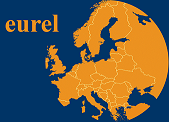Post-communist countries share a special legacy with regard to non-religion. The experience of four decades of state promoted atheism and the forced secularization of society still determine the attitudes and also legislation. In contrast with the western democratic countries where traditionally religious societies became non-religious partly, the anti-religious post-communist countries main task was to ensure the freedom of religion.
Since 1989, the Constitution of Hungary declared that the State and Church operate separately; furthermore, everyone has right to freedom of thought, conscience and religion, which includes – inter alia – the freedom to choose or change one's religion or other conviction, and the freedom to manifest or abstain from manifesting. Although the State is neutral in matters of religion, the freedom of individuals to form their conviction (or abstain from that) shall be ensured.
After the Fundamental Law of Hungary has been adopted in 2012, the legal framework of religious activity and the legal form of them have changed. Although every community has right to practice their religion without belonging to any legal form – as the Constitutional Court of Hungary declared in its decision in 1993 –, it is a fundamental requirement for the religious communities to operate in any legal form in order to ensure the freedom of religion. The Fundamental Law has introduced two different legal categories for the religious communities: ‘established Churches' and ‘organisations performing religious activities'. Under the present rules of Hungarian law, a religious community shall meet several criteria to be function as an established Church and to enjoy preferential treatment, in particular in the field of taxation and subsidies. At the same time, organisations performing religious activities shall meet fewer criteria but they gain less advantage too. However, the common point is that religious community shall be established and shall operate primarily for

 PDF version
PDF version
